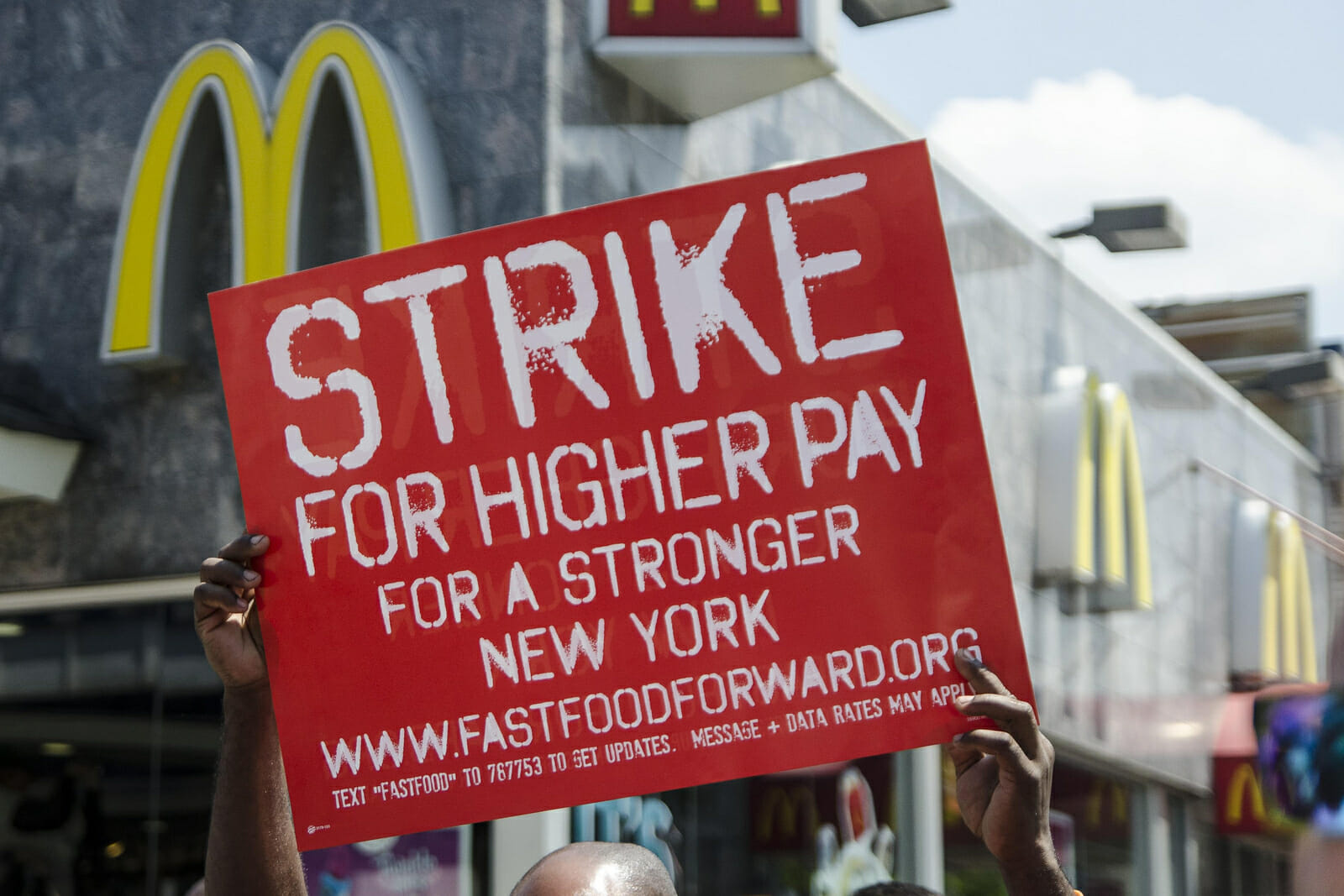
Business
Raising the Minimum Wage Doesn’t Hurt Business
“We can’t raise the minimum wage because that will put me out of business,” is a really bad argument. This is what people say when they want the government to subsidize the cost of running their businesses. Let’s imagine ourselves back in 1858, watching a debate about slavery. “If you abolish slavery and I have to hire people to plant and pick my cotton and it will raise my costs so much that I’ll go out of business,” a hypothetical Southern plantation owner would complain.
There are two replies to this argument: So long as you have no slave-utilizing competitors, you won’t go out of business because consumers will continue to buy cotton at a somewhat higher price. Secondly, if the choice truly is that we either have slaves working the cotton fields or your plantation goes out of business, then the choice is incredibly simple: In that case your plantation should go out of business.
“But who’s going to feed all my ex-slaves if my plantation goes broke?” the anti-abolitionist whines. In a free market economy, money does not disappear. It just goes other places in response to changes in price and product availability. If there is non-slave-labor that is cheaper and an equally good substitute for cotton and that cheaper alternative puts you out of business, then consumers will spend the money they would have given you to instead buy that other product and that other businessman will employ your newly unemployed slaves.
Returning to the present, let us look at the common complaint used to argue against raising the minimum wage. “If you people raise the minimum wage to a so-called ‘living wage’ I’m going to have to go out of business.”
To which there are two replies. If there is no non-food-stamp-wage cheaper and no equally good substitute for diner meatloaf and mashed potatoes then you won’t go out of business because your customers will continue to buy their Blue Plate Specials from you even though they may cost fifty or sixty cents more. Furthermore, if the only way that you can continue to sell chicken-fried steak and baked potatoes is to pay your adult, full-time employees two-thirds of what they need in order to pay their rent and feed themselves, then the choice is incredibly simple. In that case you should go out of business and let the labor market work as it was intended.
The Consequences of Low Wages for Unskilled Labor
When unskilled labor is compensated below the amount needed to feed, clothe, house, and support a full-time, adult, unskilled worker, the deficit in those living costs is made up by government subsidies like food stamps, Medicaid, Section 8 Housing and the like. The price for the products created by workers that are paid less than a living wage is lowered by food-stamp wages to the detriment of both the workers who create those products and also to the detriment of the other businesses that sell the products and services that those workers would have otherwise purchased if they had been paid a living wage. And if those adult, full-time workers had been paid a living wage, those other businesses would have employed any workers who did lose their jobs if their old employer’s business declined.
In economic terms, the low wages paid to unskilled workers are essentially a mechanism that transfers wealth from the taxpayers to the buyers and producers of the products made with that unskilled labor.
Paying Adult, Full-time Workers a Living Wage Isn’t a Problem, but a Solution
If you are against higher taxes, you should be in favor of higher wages for unskilled labor. If you are against more government bureaucracy & welfare programs, you should be in favor of higher wages for unskilled labor. If you are in favor of a more prosperous economy where more citizens have more money to spend, you should be in favor of higher wages for unskilled labor.
If you want to repeal Obamacare and cut Medicaid, there’s a way to do that while still providing health insurance for almost all Americans. You get the government out of health care by requiring all employers to provide basic health insurance as part of the minimum wage, thus shifting the cost of health insurance to the consumers as a component of the product/service’s purchase price, instead of placing the cost of both the health insurance and the bureaucracy to administer a government health care program to the taxpayers’ income taxes.
We need to see a living wage for all working Americans not as a bleeding-heart give-away but as a solution to the rising cost of entitlements, higher taxes, more bureaucracy and bigger government. We need to understand that paying all adult, full-time workers a living wage is not a problem. It’s a solution.

